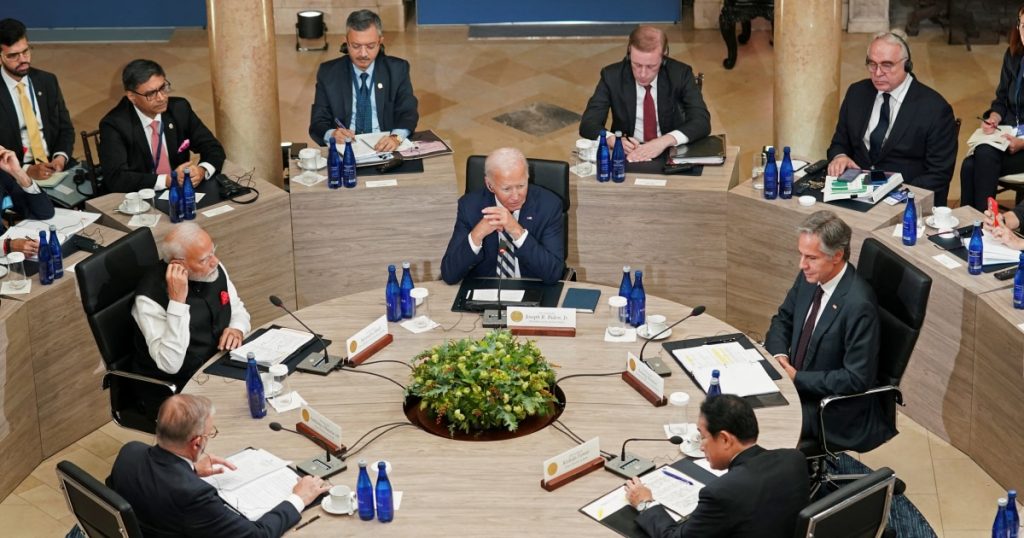Leaders from Australia, India, Japan, and the United States met to announce new security initiatives in the Indian Ocean. President Biden hosted the leaders to emphasize the importance of maintaining the Quad, a group formed due to shared concerns about China. Plans were revealed to expand the Indo-Pacific Partnership for Maritime Domain Awareness and enhance joint coast guard operations among the countries. Additionally, there will be increased military logistics cooperation with a focus on providing critical and security technologies to the Pacific islands and Southeast Asia.
During the meeting, security issues related to China were discussed, with officials highlighting the aggressive behavior of China in various regions. President Biden mentioned engaging with President Xi Jinping earlier in the year and how intense competition requires intense diplomacy to prevent conflicts. Efforts were made to address China’s behavior across economic, technological, and territorial spheres. Though the Quad is not explicitly focused on any particular country, the initiatives undertaken by the group are seen as a message to Beijing amidst growing concerns about China’s intentions and actions in the region.
The focus on maritime security initiatives by the Quad at a time when China is escalating pressure on territorial rivals was seen as a significant step. The group’s emphasis on security issues reflects a shift in priorities due to mounting concerns about China’s assertiveness. Analysts noted that India, not being part of any military alliance, initially had reservations about the militarization of the Indo-Pacific region through the Quad. However, recent maritime aggression by China has led to India being more open to security cooperation within the Quad framework.
As President Biden hosted the Quad leaders, efforts were underway to solidify and institutionalize the body before his departure from office. With changes in leadership expected in Japan, Australia, and potentially the U.S., the Quad’s future is being secured through strategic alignment and commitment to providing public goods for the Indo-Pacific. The Quad’s institutionalization is seen as a bipartisan effort, supported by both the current administration and previous administrations, evident in the bipartisan formation of a congressional Quad Caucus ahead of the summit.
Australian Prime Minister Albanese highlighted the shared concerns between Canberra and Washington regarding China’s security ambitions in Pacific island countries. Discussions focused on ways to provide further support to developing nations in the region, including climate change initiatives and energy security measures. The Quad leaders emphasized the need to address common challenges in the region and provide security, economic, and technological support to counter any potential threats posed by China. The meeting helped to reinforce the commitment of the Quad to maintaining security and stability in the Indo-Pacific region.


